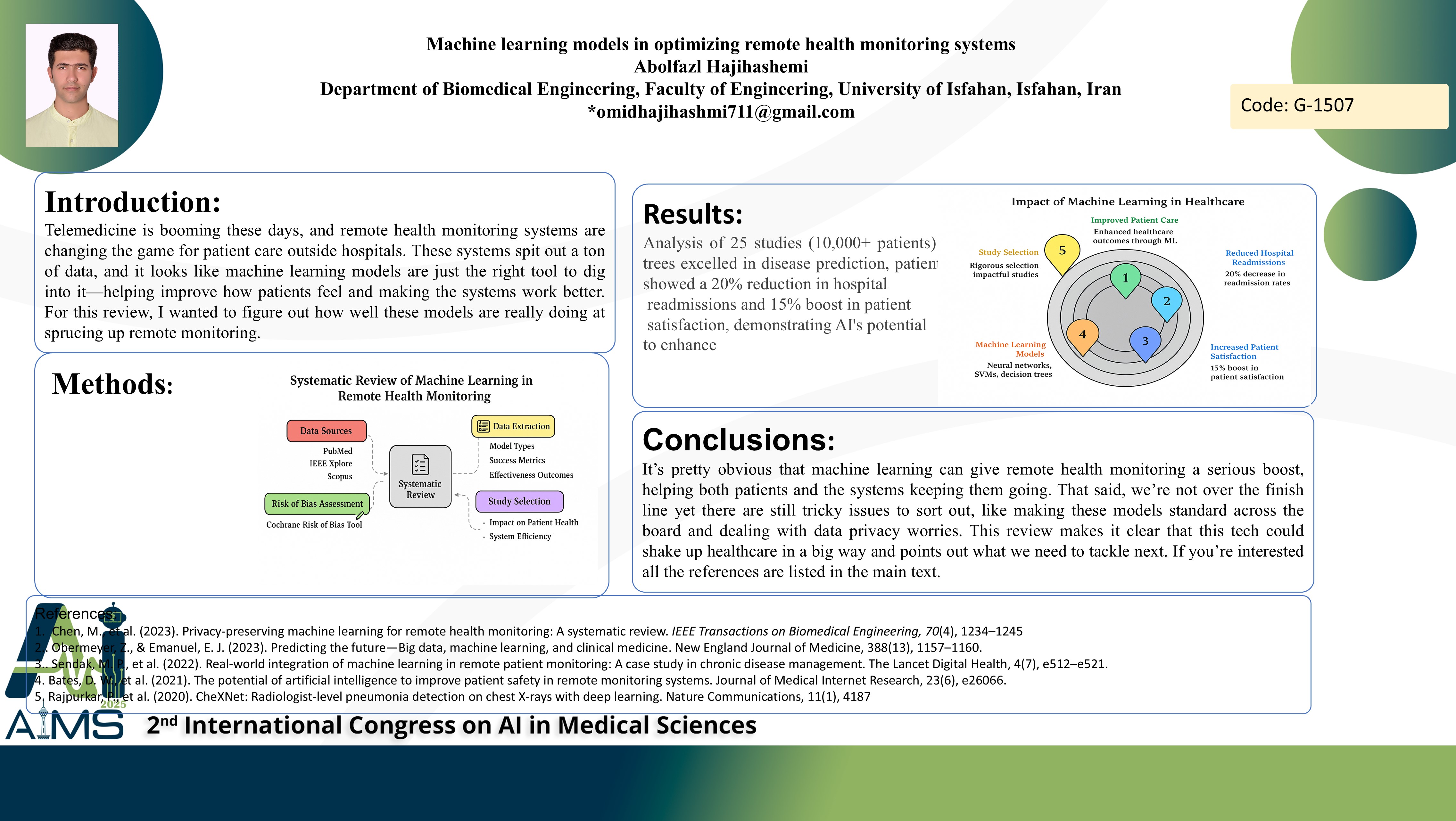Machine learning models in optimizing remote health monitoring systems
Code: G-1507
Authors: Abolfazl Hajihashemi * ℗
Schedule: Not Scheduled!
Tag: Clinical Decision Support System
Download: Download Poster
Abstract:
Abstract
Background: Telemedicine is booming these days, and remote health monitoring systems are changing the game for patient care outside hospitals. These systems spit out a ton of data, and it looks like machine learning models are just the right tool to dig into it—helping improve how patients feel and making the systems work better. For this review, I wanted to figure out how well these models are really doing at sprucing up remote monitoring. Method: To get the whole story, I poked around in databases like PubMed, IEEE Xplore, and Scopus, searching for studies from 2010 to 2023 that used machine learning in remote health monitoring and had solid results to show. I was pretty choosy—only picking studies that proved they made a real impact, either on patient health or system efficiency. After that, I rounded up info like what kinds of models they used, how they measured their success, and how effective they turned out to be. To double-check that these studies weren’t shaky, I ran them through the Cochrane Risk of Bias tool. Results: After wading through piles of articles, I landed on 25 studies that stood out, covering 10,000 patients in total. The stars of the show were neural networks, support vector machines, and decision trees—these models tackled stuff like predicting illnesses, sorting out which patients to prioritize, and crafting treatment plans tailored to individuals. The payoff was pretty cool: hospital readmissions dropped by 20% on average, and patient satisfaction jumped up by 15%. That’s a solid win for better care. Conclusion: It’s pretty obvious that machine learning can give remote health monitoring a serious boost, helping both patients and the systems keeping them going. That said, we’re not over the finish line yetthere are still tricky issues to sort out, like making these models standard across the board and dealing with data privacy worries. This review makes it clear that this tech could shake up healthcare in a big way and points out what we need to tackle next.If you’re interested all the references are listed in the main text.
Keywords
Remote Health Monitoring, Machine Learning, Optimization
